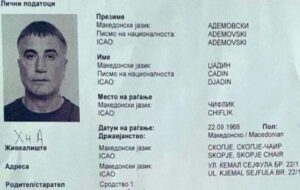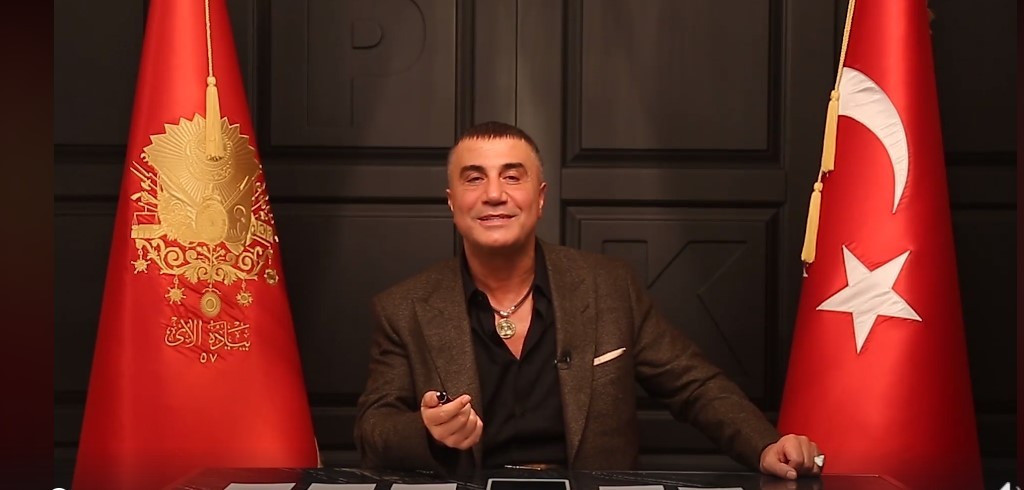Turkish mafia leader Sedat Peker, who was deported from North Macedonia in January to Kosovo, had resided in the country with fake documents, according to a report on Balkan Insight, part of the Balkan Investigative Reporting Network (BIRN).
Balkan Insight reported on Tuesday that at least nine police officers were arrested in North Macedonia on suspicion of being part of a criminal group that issued fake passports and identity documents to foreign citizens, who allegedly included Peker.
The operation against the police officers was launched following surveillance of the group for more than a year, the North Macedonian police said, adding that the investigation is being carried out in coordination with Interpol and the Office for Investigation of the US Embassy in Skopje.
Peker resided in the country with a fake ID and passport under the false identity of Xhadin Ademovski with an address in Skopje, according to the report.
Peker was arrested earlier this year in North Macedonia and was deported to neighboring Kosovo on Jan. 18. At the time, police failed to explain to BIRN why Peker, a Turkish citizen, was sent to Kosovo and did not confirm whether or not he also had a Kosovo passport.
According to information obtained by Turkish Minute at the time, Peker requested that North Macedonian authorities not deport him to Turkey and instead requested Kosovo, a country to which Turkish citizens are able to travel without visas. Upon completion of the deportation procedures, Peker was ultimately deported to Kosovo.
In the past, Peker was a regular guest at Turkish President Recep Tayyip Erdoğan’s official events. His pictures with Erdoğan had caused controversy due to his criminal reputation. Peker had also published video speeches threatening Erdoğan critics and held rallies in predominantly nationalist cities like Trabzon and Rize.
Peker’s threats had targeted followers of the faith-based Gülen movement, whom he vowed to hang in city squares, as well as the “Academics for Peace,” a group of scholars who came to prominence by signing a petition that called for a peaceful settlement of Turkey’s Kurdish conflict. Peker said he would “bathe in the blood” of the academics.
Between the years 2014 and 2019, when Peker’s threats were made, some journalists in Turkey were physically assaulted, and Peker’s men were alleged to be responsible for the attacks. However, he was not investigated or prosecuted, neither for the threats nor for the violence.



